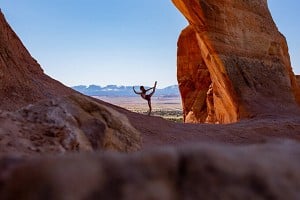
Sarah-Jane Dobner asks whether some facets of the prevailing obsession with training and nutrition in climbing are causing some of us to disconnect emotionally from the sport, and in extreme cases, from our own bodies...
Are we losing touch with our senses? A recent UKC article by Mina Leslie-Wujastyk on Relative Energy Deficiency in Sport (RED-S) described her progressive dissociation from hunger, from tiredness - how she mentally pushed through physical warnings, controls and barriers. Looking around, such disjunction from the body appears increasingly fashionable in this hobby of ours. But our sport is so visceral! So tactile! What's going on?
Over the past twenty years I have borne witness to the professionalisation and commercialisation of rock climbing. Partly this has been fabulous, and led to more opportunities and wider access. On the flip side, aspects of this apparent progress are problematic. In this article I explore some questionable developments in training and nutrition, where climbers are following regimes rather than listening to their bodies. This is a cultural change and, as such, it seems to me that Leslie-Wujastyk's experience did not happen in isolation. Even non-professionals can find themselves alienated from how they feel and what they need.
Hunger is your friend
Let's look at food. There are two devils emerging here. One is under-eating and the other is quashing of flavour. More has been written elsewhere on the perils of calorie-counting and dieting which reduces food to numbers and statistics. Here I am going to focus on the brutalisation of taste.
Food used to taste great. Soup, flapjacks, beans on toast, banana porridge. Increasingly I see meals being reduced to nutritional food-groups. This is always a red flag for me. When something which tastes nice (food) is separated out into component parts which can be sold for profit, my alarm bells ring. There is talk of "fuelling" rather than eating. Like a car.
A current fad in my immediate community is protein. My housemates all have protein powders. The drying rack is always stacked with component parts of protein shakers. Does this raw protein really improve people's performance? Whatever food fads have passed me in the last two decades, don't climbers continue to function broadly similarly? It seems a case of The Emperor's New Clothes - as each new marketed product comes out, everyone reinforces each other's faith in its efficacy, so they don't seem a fool. Wouldn't it be better (or just as good, and cheaper) to just eat a balanced diet of delicious food? And even if these protein waters (and electrolyte chewing gums and vitamin bars etc) actually do work, do increase function by X%, do make us bigger and stronger and more fabulous than we are as normal human beings - what are the implications? There's been a shift - from doing activities because we love them, to doing exercise because we want to look and perform like world class athletes, like machines. We've become cyborg-climbers.
Crucially, all my housemates turn the unhappy ends of their sad mouths down and say how terrible the shakes taste. Tricks to disguise protein powder are exchanged. Whizzed up in smoothies with other (real) food. Sprinkled (just enough to give a decent protein dose, not so much as to kill the meal) on top of anything from soups to stews to cereals. What has been sacrificed? The taste buds. The delicious, tender, loving buds which like to savour blackberries and roast lamb and almonds, damp and fresh, from the shell. Separated-out protein tastes so vile that surely it teaches the taste buds to numb themselves, out of self-protection. And when taste becomes numbed, they can sell you anything.
How alienated are we? One observation is on the weaponisation of food. Looky here:
Body armour - Body Armour sports drinks
Grenade - energy food and drinks
Look at the packaging. Who is this for? It is gendered in a way which reinforces toxic masculinity - black/grey with unsparing, war-like fonts. Is this food? Or war? What is actually in these products? They appear to be, fundamentally, sugary drinks and confectionery with caffeine and extras. Squash, really. And candy bars. Being marketed like military hardware. Do we really want to eat some body armour, a grenade, a few bullets and swallow a sword?
Even at the softer end, innocuous bottles for water have phrases like "Adventurecapitalist" emblazoned on the side. A protein shaker promising to "Fuel your ambition". Wow. What's wrong with "Enjoy the taste!" or "Thanks for using a re-useable container, thus reducing plastic waste" (not snappy enough?). As it is, the slogans advocate one-up-man(sic)-ship through a beverage. World domination through a drink.
What is going on with these products? They do not accord with the men I know, the climbers I know. Climbers have always been non-conformist, environmentalist, welcoming to outsiders and outliers, sensitive in unexpected ways. Haven't they?
We are being encouraged to eat like soldiers, like astronauts. A food pill. A dose of white powder. An injection of winning-formula. Where is the flavour, the subtlety, the joy of different textures? The juice of an apple, crisp-snappy? The butter-melt in a baked potato?
By a trick of marketing, we are beginning to lose touch with our internal signals of hunger and taste.
Tiredness is your helpmeet
Over-exercise is another dysmorphia in our sport. Mina Leslie-Wujastyk did not rest her body sufficiently. She kept going and kept going and didn't listen to her flesh.
She's not alone. Another remarkably successful fad in the last 20 years has been training. We're all training now! All getting fit! But it wasn't always so. When I started climbing, no-one used to train - they just climbed. We went to Pembroke and Fontainebleau and multi-pitch crags in Spain and no-one trained. To clarify, I am not keen on going back to 'the good old days'. Way more alcohol was consumed, for a start, and pretty much everyone smoked. So there were problems then too! Just different ones…
By 'training' I mean doing peripheral activities spoken about as support-activities to climbing. Like finger-boarding, TRX, core sessions, conditioning, beast-makers, circuits, campusing…The tone is different - numerically based and less driven by spontaneous desire. Leisure has become job-like with schedules, measurements and performance targets. Again, a machine-like quality, more cyborg than human.
How effective is it? Greater strength can be a godsend and really boost confidence - all good! But without a well-integrated programme, there can be gaps between training and performance. For many of us, might training one intense, repetitive action primarily make us better at that specific, dissociated movement? How transferable is it outdoors - will it help you on real rock, any more than if you'd spent that time doing more actual climbing? Indeed, hasn't training indoors cut into time that could have been spent in nature, on our wild and lovely cliffs and crags? Wouldn't your focus be better spent improving your technique? Why has training become so ubiquitous?
Has it been promoted in a consumer culture as training is lucrative? Sales of equipment must have soared in recent years. An industry of talks and workshops, online and offline courses and regimes. No-one used to sell us anything, when we sat at the crag. I am not against training per se. I am too permissive for that. But I am interested in the shift, the expansion of training as a phenomenon.
The problem with training is that there is precious little credence given to how you feel, whether you feel tired, whether you have done enough for today. No. You have another 100 reps to do on your schedule, so the agenda is followed, rather than the needs of your body. This cyborg-culture can be especially harmful to young climbers, some of whom have Olympic aspirations and are soaking up prevailing ideas on training, diet and weight loss.
Why are these changes happening? No doubt there are a dozen explanations. I'm going to focus on two - the prioritisation of our visual register and the Western notion of constant growth.
Prioritisation of the visual (= how you look matters more than how you feel)
From the first dozen years of climbing, I have very few photographs. Grainy bum-shots. Faded film-print. Nowadays, as we know, everyone (in the West, of a certain demographic, including most climbers) has a smart phone. We take digital pictures all the time. Rock-climbing and bouldering photographs seem custom-made for the internet age. Look at that muscle tone! Those guns! Those abs! Sometimes people seem more concerned with getting a good picture for social media than with the experience of climbing. Our virtual realities are very demanding.
In this context, it is important to be slender and fit and well-presented, constantly, as the camera could catch you at any moment. Instagram dictates we should be more toned, thinner, younger, more muscular. Hungry? Tired? No time for that! Chin up! Smile! How we look is taking precedence over how we feel.
As a brief detour into clothing, it seems pertinent that we used to wear our oldest, most broken clothes. Climbing involved getting smeared in mud, chalk and guano. Climbing involved snagging leggings on sharp, limestone jags; the abrasion of knees and seat by granite and grit. We would change out of everyday clothes into mismatched battered tops and holey long-johns in the car parks. We would wear clothes we found at the roadside or in lost property bins. And then go to the sea cliffs and rubbishy quarries and get messy.
Little by little we learnt to stop wearing patched fleece trousers left over, unclaimed, from a house party, and learnt to spend £69.99 on some jeans with a climbing brand name.
I have some of these jeans, in fact. They are rather lovely. There's been an evolution of independent, ecology-conscious, non-sweatshop climbing-wear that have sprung up like fairy toadstools in the present climate. I want to look like everyone else. I want to blend in. I want to support the small, local manufacturers. I like the new colours and the flexible fabrics. I'm a sucker too. I'm corruptible.
Which is to say, it never used to matter how we looked. And now it does. Even to me.
Constant growth (= we must always be getting better and better)
In Western, consumerist, late-capitalist society we inhabit the fallacy of constant growth. The rampaging impossibility of this philosophy has been exposed by environmentalists. Our planet lacks the resources to deliver never-ending expansion and so it has been necessary to challenge this orthodoxy. Extrapolated to our sport, why the constant expectation of bigger and better, faster and harder performance? How about sustainable climbing with fewer injuries, more work-life-play balance, more longevity?
In reality, I suspect bumbling along is how the majority of climbers, both old and young, actually climb. But how much is this world-view represented? Why does a VS climber apologise for being a VS climber? Why should someone on juggy resin swirls feel embarrassed about being on juggy resin swirls? Why is this not acceptable, worthy, enough? As if pottering about is some kind of moral turpitude. Why is pleasure deemed lesser than harder, higher grades?
Why do you climb? To punish yourself or for pleasure? Both are eminently possible, it is a sport for all proclivities. But if you climb for enjoyment, where does happiness lie? In the appreciation of landscape, the pas de deux of movement, niceness of touch, companionship, tactile loveliness, that mental spaciousness, the full-body sigh where you get away from screens and desks and traffic jams and laundry and shopping lists and relationship complications and experience joy. Cannot you just do this, revel in this, be this?
Why "get better" at all? Why "improve"?
Someone is making money
Do we need more supplements? To exercise more? Why? Who gains from this? We are being trained to concentrate on how we look and perform and, almost inevitably, that we don't look good enough or perform well enough. Products and services are springing up everywhere, ready to buy. Cosmetic surgery has gone up exponentially. Images of climbers are used to sell banking products and advertise business promotions. Someone is making money out of us.
Perhaps Neo-Liberal Late-Capitalist society is doing this on purpose, to divide us from ourselves and what feels good. The system is an animal, like any other, which wants to thrive and it does this best, and makes the most money, by seeding anxiety and doubt and making you spend money. Most of all, you have to spend money. On protein powders and power drinks, conditioning equipment and training workshops.
Perhaps that's a little paranoid.
Let's say it's not a direct plan. Let's say I'm not talking a big conspiracy theory here, where the Powers-That-Be want me to forget the way it feels to brush my fingers over a slab of sunny granite - the way the rock gives out warmth like a huge, live bear; the way each crystal sticks, minutely, into the whorls of my tips. No. They don't care. De-prioritisation of our non-visual senses (taste, smell, whether we feel tired or hungry) is just collateral damage from the money-machines. Our losses are merely a corollary, an unintended effect, unfortunate but inevitable. Like the way agricultural sprays led to the destruction of butterflies and bees. What a shame! They were just trying to get bigger and better crops!
Have that giant roast dinner and take a nap
Do we need to come to our senses? Debate whether we have to be continually dieting, fasting, eating isolated food groups, counting reps, pulling up, wearing weight belts, drilling circuits, dead hangs, pushing ourselves? There is a dehumanising rigidity about this cyborg-climber culture: numerical over the sensual, procedural over the passionate. It is making some of us ill.
Feelings are an ecosystem. It's important we know when we're happy, sad, tired, lonely, energised, hungry, uncertain, relaxed. But we are not being trained how to feel. Do you feel good? Hurray. You win. Do you move like a ripple of water? Lord be praised. Do you know when you need to rest? Then lie down for a nap in the afternoon, or watch Fleabag and have an early night, rather than go to the gym. Responding to how we feel keeps us safe and healthy.
We need to consider what relationship we have with our bodies. Is our corporeality an inanimate tool, mechanism/machine, slave, something other? Or a friend, a counsellor, an intimate, a guide, a companion with whom to have fun, an equal? Physicality as the self. Asking ourselves how it feels, how we feel inside, how the rock feels, seems good medicine in these times.
- ARTICLE: Pembroke: Part Atoms, Part Song 21 Dec, 2022
- ARTICLE: A Feeling for Rock 10 Nov, 2021
- GEAR NEWS: A Feeling for Rock, by Sarah-Jane Dobner 18 Mar, 2021
- CRAG NOTES: Fairground under Wraps 1 Feb, 2021
- ARTICLE: Portland: Here be Dragons 24 Aug, 2020
- FEATURE: Costa Blanca - Book of Wonders 19 Feb, 2020
- FEATURE: The Western Isles: Checkmate 5 Dec, 2019
- FEATURE: Kalymnos: The Smooth and the Rough 15 May, 2019
- FEATURE: Poetry - Song of Bare Blåbær 21 Mar, 2019

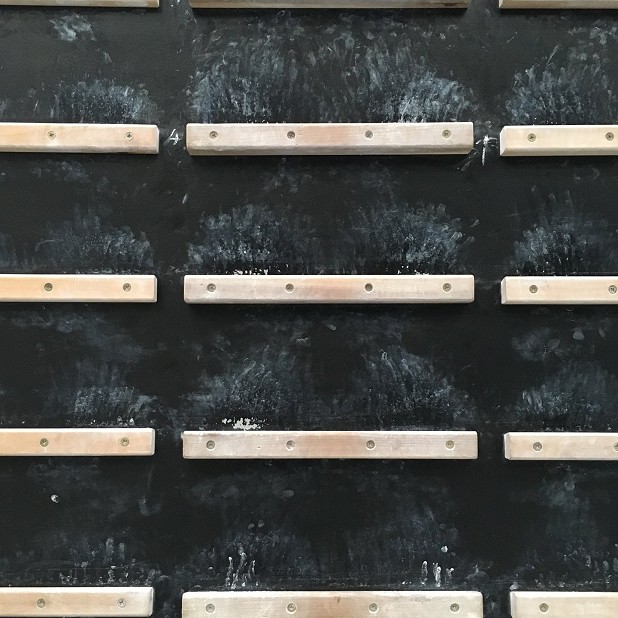
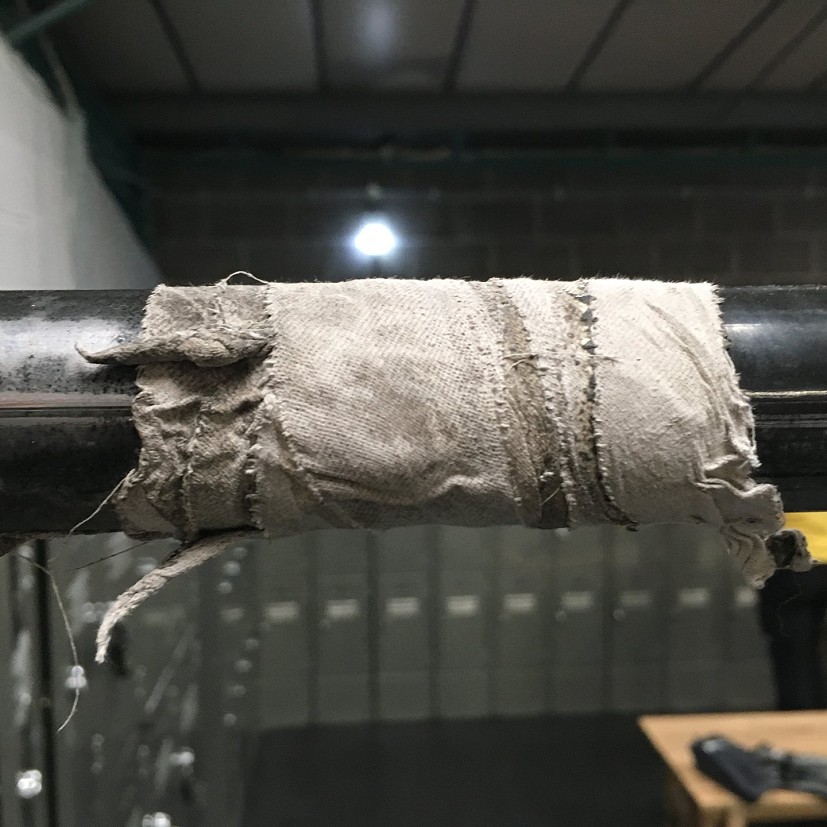
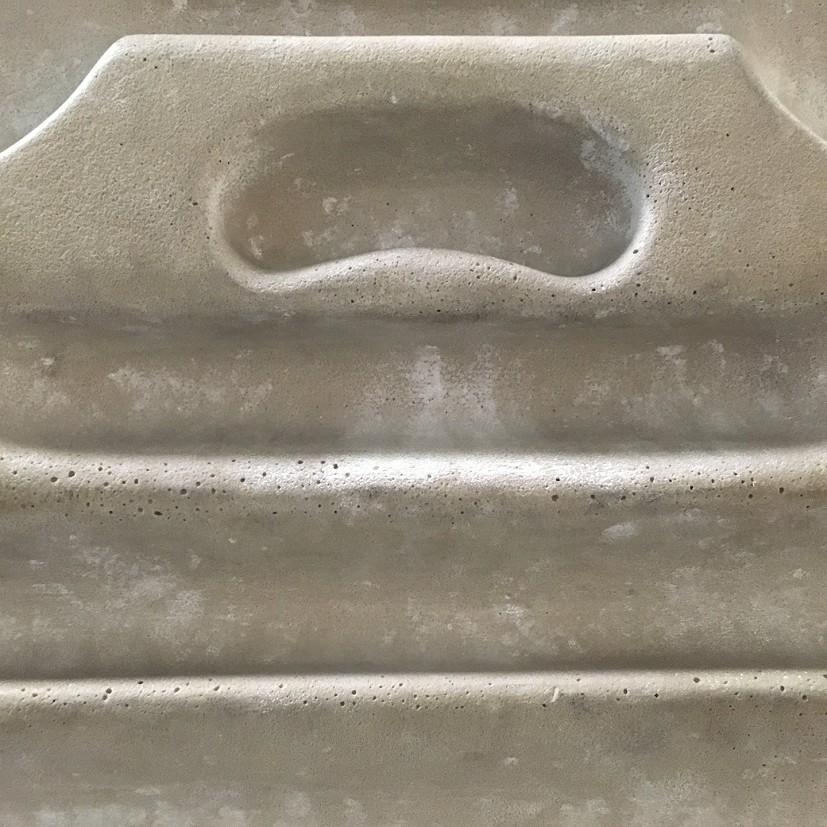



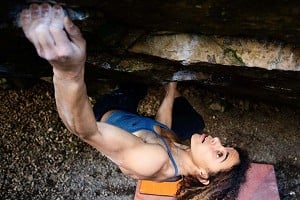
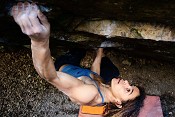






Comments
Is there really anything interesting contained in this long self-centred stream of consciousness? Another predictable jumble of well intentioned but ultimately extremely superficial political perspectives of the sort we have all heard a hundred times before? Don’t get me wrong. I’m corruptible. But have we ever stopped to ask ourselves - why are we bothering to read another Sarah Jane Dobson piece? Is it because the over use of question marks makes her musings seem profound? Is it because we are simply bored at work? Or is it something deeper, a desire to hurt ourselves against our best instincts?
But here’s what I do know. Body image problems? Bad! Consumerism? Bad! Other people’s preferences for suppressing their evolved predilection for nice tasting food as part of a calculated attempt to manipulate biology for a tangible reward in conjunction with a training process they personally enjoy? Bad!
Am I wrong to write these words? Does anything really matter? Are we all just cyborgs? Is an opinion worth reading just because it exists? These are the deep questions we must as UCK readers ask ourselves.
or, y’know, not.
I just want to know the answer. Or do I?
The rant against training is bizarre - the number of people I see at climbing walls (London) doing specific training is tiny compared to those just climbing things. The campus board is lucky if 1 or 2 people use it properly on a busy evening...
The protein thing whilst valid is not specific to climbing, covers every sport and the food industry. 'High protein = healthy' is just the new 'low fat'.
Just because you didn't know or hang with people who trained doesn't mean nobody did.
When I started climbing forty years ago most of the people I climbed with trained, so I did too. In my case it didn't make me into a great, or even good, climber. But it gave me something far more important and valuable, namely a love for physical activity and striving that has consistently been one of the most valuable threads running through my life. I had a long time away from climbing, but filled that time with other things - yoga, mountain biking, snowboarding - that kept me fit, healthy and moving in the mountains.
You either love the training grind for its own sake or you don't, and not doing so is fine. But suggesting there's something new about it is absurd, and suggesting people who do are characterless cyborgs with no aesthetic sense is obnoxious.
I enjoyed looking at the stars on my New Year's summit bivvy in the Karwendel, and a couple of days later I enjoyed getting close to my max hang personal best on my beastmaker in my living room. Who the hell does Sarah Jane Dobner think she is to tell me one of these pleasures is valid and the other isn't?
You know plenty of people enjoy training?
I love climbing. I love training.
Training makes me love climbing even more.
I love the fact climbing is so many different things to so many different people.
Article sounds like a predictably boring rant to me I’m afraid.